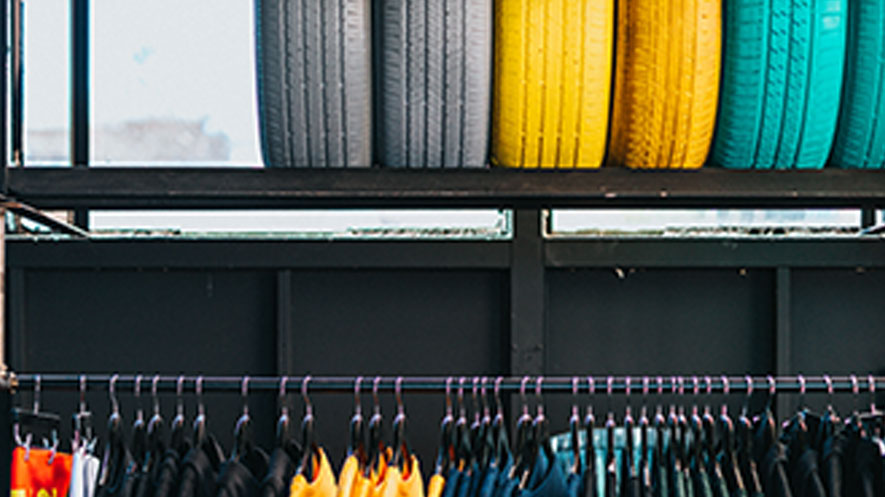Scientists from the University of Plymouth have received Government funding to launch a new research project analyzing the impact of tires and clothing on the marine environment.
The UK's Environment Minister Thérèse Coffey has pledged £200,000 to explore how tiny plastic particles from tires, synthetic materials like polyester, and fishing gear – such as nets, ropes, and lines – enter our waterways and oceans, and the impact they have on marine life.
Following the government’s ban on microbeads, this comprehensive study will be used to improve our scientific understanding of how microplastics from other sources enter the oceans. These sources include the fibers released into wastewater during a washing cycle, or car tire friction on roads creating dust particles that make their way into the ocean through sewers.
The 11-month project will build on research already underway, with some scientists estimating that tires contribute 270,000 tonnes of plastics per year. A study by the University has also shown a single wash load of acrylic clothing could release over 700,000 microfibers into the ocean.
Speaking at the National Oceanographic Association’s annual conference in London, Environment Minister Thérèse Coffey said, “The impact of plastic pollution on our oceans is one of the greatest environmental challenges of our generation. The UK is already leading the way in this area, but we want to go further – and faster. But we can only act where there is robust evidence, and through this exciting project we will build on work underway to better understand how microplastics end up in the marine environment and what we can do to tackle this in the future.”
The project is being led by Professor Richard Thompson OBE, Head of the International Marine Litter Research Unit at the University of Plymouth. Thompson oversaw the Department for Environment Food & Rural Affairs (Defra) first research project on microplastics and their impact on the marine environment. His work led to the UK’s pioneering ban on microbeads in rinse-off cosmetics and personal care products coming into force this year.
It will also build on the previous study completed by the university on the contribution of washing machines, by identifying the quantities of synthetic fibers and textiles released through stormwater runoff, combined sewage overflows, treated effluent, and airborne transport.
Professor Thompson said, “The types of microplastics entering the marine environment are incredibly diverse, but recent estimates in Norway and Sweden have suggested that particles of tire and debris from the road surface could be a substantial source. With very limited real data available to confirm the impact from these sources, there is a genuine and pressing need to establish the true scale of this issue. By combining this with an assessment of the quantities of microplastic from synthetic textiles, we can develop a complete picture on the relative importance of various sources. We will be able to use our findings to work with the Government, scientists, and industry to try to prevent these particles entering the marine environment in the future.”
This project will be used to guide future policy priorities as the Government continues in its fight against the scourge of plastics. These efforts include the 5p plastic bag charge which has led to 9 billion fewer bags distributed in the UK, last month’s pledge to introduce a deposit-return scheme for single use drinks containers (subject to consultation), and the recent announcement to end the sale of plastic straws, stirrers, and plastic-stemmed cotton buds.
The research sits alongside the 25 Year Environment Plan commitment to eliminate avoidable plastic waste, and the Treasury’s call for evidence on how charges and changes to the tax system could be used to reduce single-use plastics.



